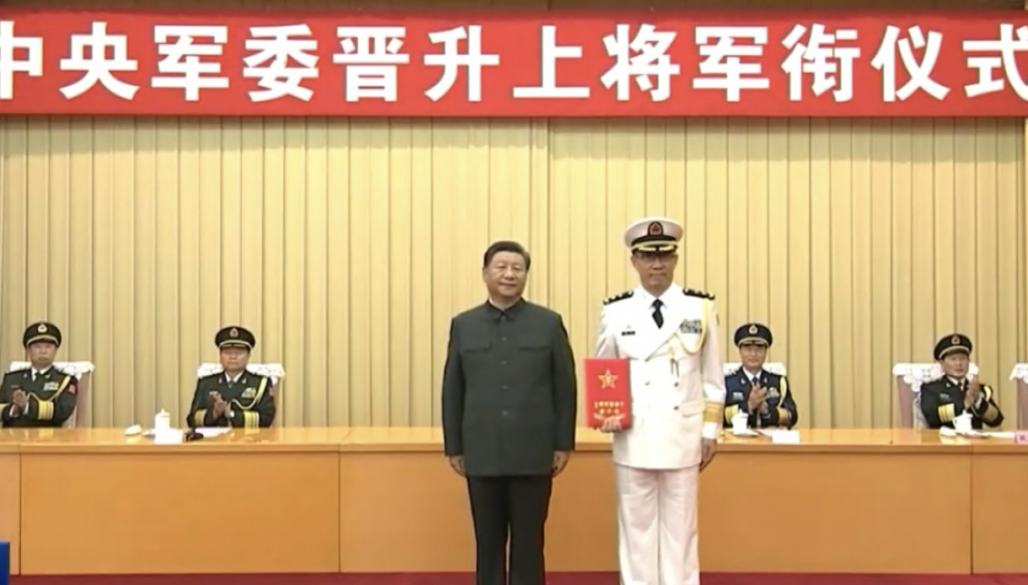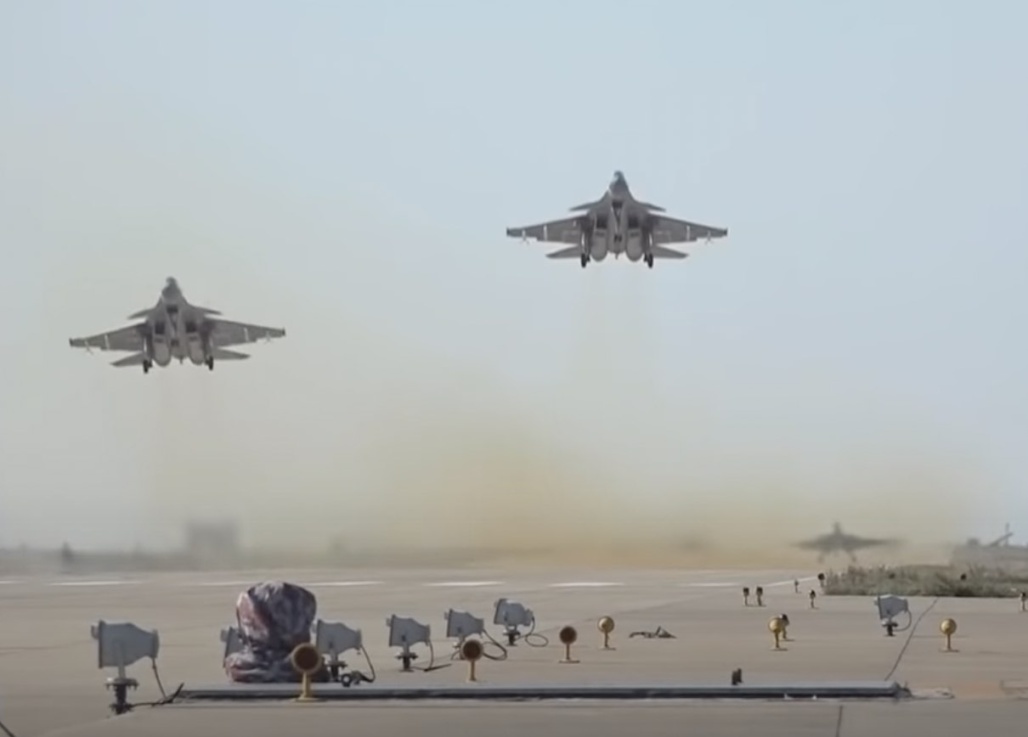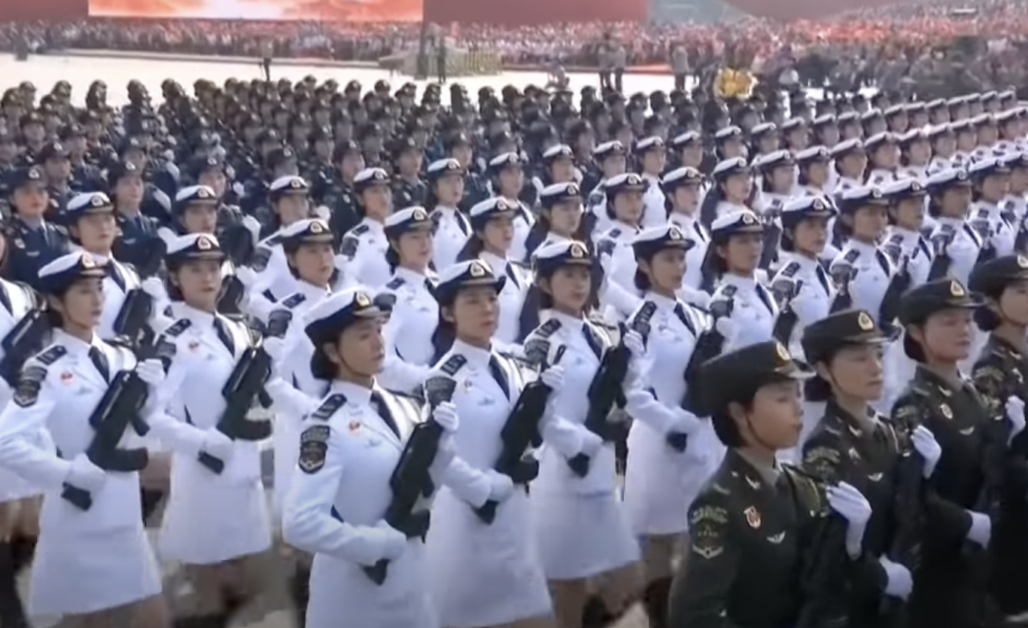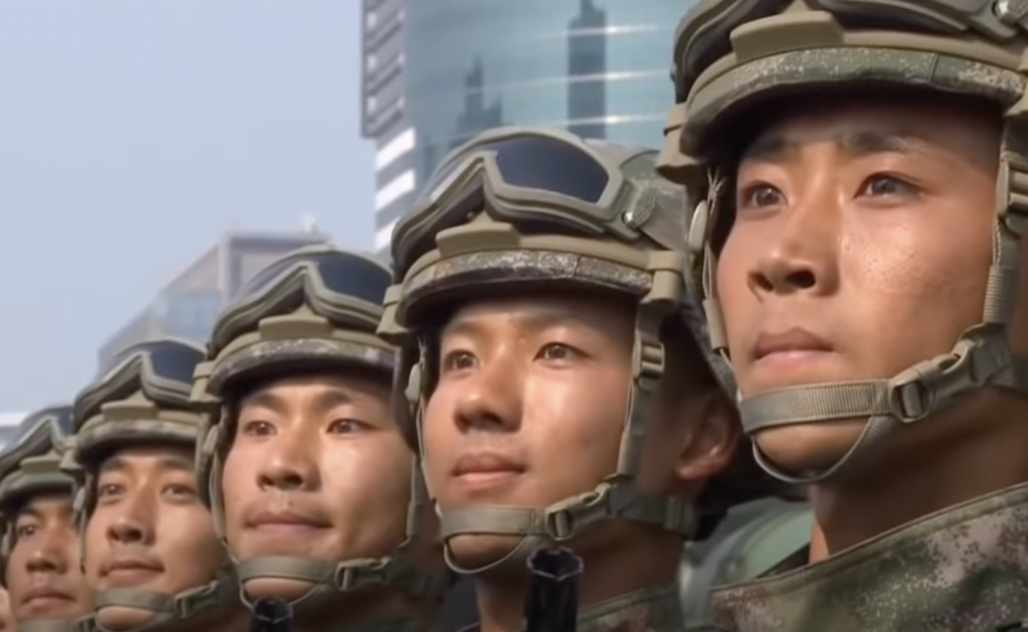[ad_1]
The most recent leadership reshuffle of the leadership of the People’s Liberation Army (PLA) of the People’s Republic of China (PRC) has important implications for its development in the short run, including its reform and redirection.
On December 29, 2023, the Standing Committee of the National People’s Congress (SCNPC) held its seventh meeting that approved the appointment of 62-year-old Dong Jun as the Defence Minister, two months after the sudden removal of his predecessor Li Shangfu. Dong was the former head of the PLA navy and is not on the list of US sanctions, implying that he would be able to interact with the US counterpart directly at a time when the Chinese and US militaries are enhancing their communication through the hotline liaison mechanism.
Although Li Shangfu’s removal was not explained by the mainland media, he might be involved in corruption scandal, especially as Li was dealing with the strategic and logistics supply and the procurement of military weapons from 2013 to 2017.
Li’s removal coincidentally came at a time when the mainland emphasized the need for a strong military with its improved capability amid modernization – a theme also stressed by the remarks of the chairperson of the Central Military Commission, the Communist Party of China (CPC) General Secretary Xi Jinping.
The SCNPC on December 29 also announced that nine PLA representatives were all removed from their representative positions in the national legislature. They were Lu Hong, Li Yuchao, Li Chuanguang, Zhou Yaning, Zhang Zhenzhong; Zhang Yulin, Rao Wenmin, Ju Xinchun, and Ding Laihang.

Lu Hong was a member of the Rocket Force; Li Yuchao was a commander of the Rocket Force; Li Chuanguang was a deputy commander of the Rocket Force; Zhou was a commander of the Rocket Force; Zhang Zhenzhong was a deputy commander of the Rocket Force and a chief of the joint staff department of the Central Military Commission; Zhang Yulin was a deputy director of the General Armament Department; Rao Wenmin was a member of the Equipment Development Department; Ju was a commander of the Southern Theatre navy command; and Ding Laihang was a commander of the Air Force.
Judging from the spread of these removed officers, which ranged from Rocket Force to Air Force, and from General Armament Department to Equipment Development Department, it was likely that they were involved in corruption concerning procurement, equipment, and armament of the Rocket Force.

Two of the nine removed officials were of high-ranking generals: they were Zhou Yaning, general of the PLA and commander of the Rocket Force from 2017 to 2022 and, since October 2017, a member of the Central Committee of the CPC. In December 2015, Zhou was appointed as the first batch of new leaders of the Rocket Force, In August 2017, he became the Force’s commander.
Another general was Li Yuchao, a commander of the Rocket Force. Born in 1962, Li was a deputy chief-of-staff of the Second Artillery Force in 2008. In 2012, he became a deputy principal of the Second Artillery Engineering University. Four years later, he was promoted as a commander of the Rocket Force’s 55th base. In January 2022, Li was promoted further to be the commander of the Rocket Force.
It was reported that Zhou Yaning, Li Yuchao and Rocket Force’s deputy commander Liu Guangbin in July 2023 were investigated by the officials of the Central Military Commission’s Discipline Inspection Committee and the Military Commission’s Audit Department.
The removal of the PLA officials coincided with a report on December 27, 2023, when the Chinese People’s Political Consultative Conference (CPPCC) decided to remove three high-ranking officials of the military-industrial complex. They were Liu Shiquan (the chair of the Board of China North Industries Group Corporation), Wu Yansheng (board member of the China Aerospace Science and Technology Corporation), and Wang Changqing (an executive member of the China Aerospace Science and Technology Corporation). Since the companies dealt with weapons production at a time when Li Shangfu led the PLA’s procurement department, there were grounds for believing that these top three executives of the military-industrial complex were enmeshed in corruption activities.
It was reported that on December 19, 2023, the party organizations affiliated with the related Chinese aerospace industrial complex were required to hold meetings to study the directive issued by CPC General Secretary Xi Jinping, who mentioned as early as August 2018 that the PLA had to obey the directives of the CPC, that the military must insist on the need to build up a clean party, that the military must be strong and modernized, and that military officers must uphold the principles of being good cadres in observing strict discipline and combatting corruption. During the party construction meeting of the Central Military Commission in August 2018, Xi Jinping said that the military must implement stricter party governance, must obey the party, must construct a first-class military force, and must insist on the centralized and unified leadership of the CPC. The military forces, according to Xi, must be loyal to the party, must implement the system of the division of labour and responsibilities under the unified leadership of the CPC, and must perfect the mechanism of the party-led military (see http://www.crntt.hk, August 20, 2018).

Obviously, the anti-corruption drive has been deepening since Xi’s important speech in August 2018. Furthermore, in March 2021, the Central Military Commission released its revised regulations on the work of the Central Discipline Inspection Commission in the armed forces, regulations that were implemented in April immediately. The revised regulations pointed to the need for improving the party conduct and discipline in the PLA, the emphasis on the party’s political building work, and the necessity of combatting corruption within the military force.
If anti-corruption has remained persistent in the PLA, it is not surprising that the PLA has recently witnessed a series of removal of high-ranking officers and that the military-industrial complex has also followed a similar pattern.
On December 25, 2023, the Central Military Commission held a promotion ceremony in Beijing where seven high-ranking officers were promoted as generals – a promotion that was regarded as the most extensive one in China since 1988. Of those who were promoted, two of them deserve our attention. They were Hu Zhongming, a submarine expert being promoted as the PLA navy commander, and Wang Wenquan, a political commissar of the Eastern Theatre Command being promoted as an admiral. The 62-year-old PLA navy commander Dong Jun was not mentioned on December 25, but he was later promoted five days later as the Defence Minister.
The fact that these three high-ranking commanders of the PLA navy were promoted simultaneously has important implications for the reform and redirection of the PLA.
First, with the purge of those PLA commanders who were reportedly involved in corruption activities, the Central Military Commission leadership appears to attach immense importance to the navy commanders to take on the PLA leadership positions.
Second, it implies that, with the ongoing territorial disputes between China and the Philippines over the Scarborough Shoal in the South China Sea, the promotion of three navy commanders as mentioned above point to China’s priority in dealing with territorial disputes in the South China Sea region.
Third, if the new Defence Minister Dong Jun is by no means on the US sanction list, then his communication with the counterpart in the US side would be facilitated – a situation coinciding with the emphasis on military-to-military commission during the recent meeting between President Xi Jinping and President Joe Biden in San Francisco in mid-November.
Fourth, as Taiwan’s presidential election appears to point to a victory of the Democratic Progressive Party (DPP) led by William Lai, the relations between the mainland and Taiwan will be quite challenging in the coming years, unless the DPP would really alter its anti-mainland stance. The Kuomintang side led by Hou You-yi has publicly appealed to William Lai to abandon the DPP’s pro-independence position. Unless the DPP, as the mainland side has maintained, changes drastically to accept the 1992 consensus, mainland-Taiwan relations would very likely be a flashpoint that would trigger the need for the mainland navy to respond to the domestic development of the island province.

During the Nancy Pelosi visit to Taiwan in August 2022, the PLA conducted air-naval live-fire drills in six areas surrounding the island. If the navy occupies a pivotal role in any emergency response to Taiwan’s development, it is not surprising that the PLA navy commanders are now taking on the key leadership role of the Chinese military.
On December 24, 2023, the Taiwan defence ministry announced that the PLA fighter airplanes and warships had movements in the peripheral aerial regions and waters, including an air balloon (Oriental Daily, December 24, 2023). The movement of the PLA air force and navy in Taiwan’s nearby airspace and waters has become a normal phenomenon. The challenge for the mainland and Taiwan sides is to prevent the occurrence of military accidents, including their air force and navies.
In conclusion, the removal of some high-level PLA commanders in the mainland is not a surprising phenomenon, which is attributable to the persistence of the anti-corruption campaign within the military and the military-industrial complex. The reforms of the PLA embrace not only the consolidation of the CPC leadership but also its internal anti-corruption drive for the sake of building up a strong military in the ongoing process of military modernization. The purge of several Rocket Force commanders who were involved in corruption points to the need for a stronger leadership in the Rocket Force. It is noteworthy that the PLA leadership is pointing to a new direction: the navy commanders are now playing a crucial role in the new PLA leadership, especially considering the territorial disputes between China and the Philippines in the South China Sea and in face of the sensitivities of Taiwan’s political development. With the rejuvenation of the PLA leadership, China’s vision of having a strong military under the party leadership has already been fulfilled. If so, it remains to be seen how the PLA will continue to fully protect the sovereignty, development, and national security interest of the PRC.
[ad_2]
Source link
